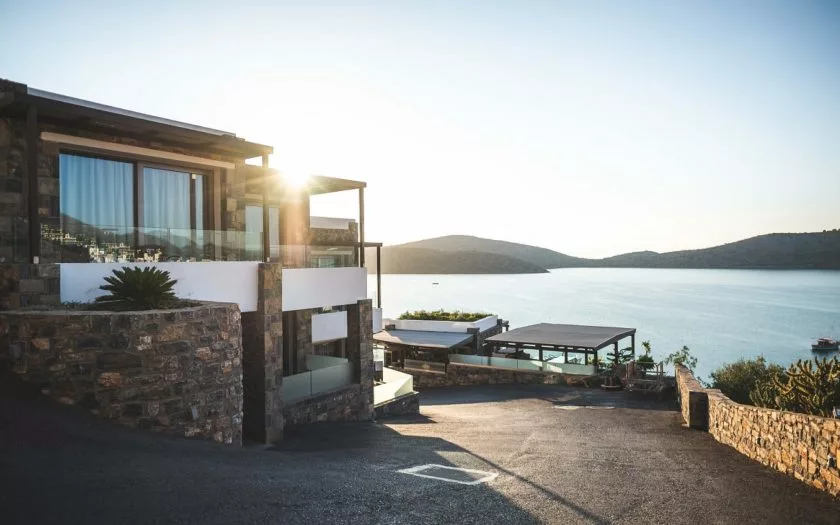
Should I Rent or Buy? Find Out in 7 Steps
Most of us have been there – wondering whether buying is a good idea, or at least if it’s better than renting. Many compromised and made the less-then-ideal decision due to FOMO, social pressure, or other biases. However, many built equity and improved both their lifestyle and cash flow. And lastly, many struggled with the dilemma and are yet to make a decision… Unfortunately, thus making the decision of renting, at least until the next evaluation.
In case you’re reading this post, I’d assume that you’re in one of the following three categories:
- A person considering a purchase
- An early home owner
- A frequent reader of MonkWealth
Whichever you are, this post will either give you some good ideas or resolve the doubts you may have. And of course, even if you’re not in the three categories, this post might teach or remind you, in a structural way, about how to make smarter financial decisions.
No idea why I wrote the categories – they actually might turn down readers that belong in neither… Especially that I’d expect new readers to land on this post organically, as the title has inherent SEO built in it. So, hi new reader! This post is also for you – you can get familiar with the writing style of a Monk who talks about finance, but doesn’t seem uptight nor thinks he has it all figured out… And still gives opinion regarding the biggest purchase of most people’s lives.
The rules of the game
Before going into the 7 steps, let me explain how to follow them.
We will play a game of 7 levels and you, the player, will have 2 lives.
Every level is a question you need to answer, preferably using the words YES and NO, but if unsure you can also say idk, not sure, etc.
The game is over in the following two scenarios: if you answer all the questions OR if you lose all your lives.
You lose a life each time your answer is not a YES. If you pass the 7th level before losing your two lives, then you won the game.
By the way, you also win the game if you lose your lives. There is no lose scenario, actually. Both failing to pass the levels and passing them successfully will result in giving you the answer you’re looking for.
So, you’ve got two lives. Make sure to keep track of them after each question. Read them carefully and there will be a summary below.
Let the game begin.
The 7 steps
1. Will you be able to cover 6 months of expenses after your purchase?
Pretty straight forward – you put your down-payment and get the property. You pay for the real estate agent, the notary, the mortgage adviser, as well as for insurance and transfer fees. And you also start furnishing your home.
After all these expenses, do you think that you’ll be able to remain financially stable (remain in positive net worth) in the first 6 months?
Ideally this amount would be your emergency fund, but even if you’re certain that you’ll receive a steady paycheck (although you’re on a temporary contact as we’re heading towards the next recession), then answer YES and go to the next question.
If you’re not sure or you’re sure that you couldn’t, it’s not a big deal. Take away a life and continue to the next question with one life remaining.
2. Will your monthly costs be within 110% or less of your current housing expenses?
The only purchase that makes sense for me is the one where you’re not increasing the opportunity cost for yourself. That means that your expenses should be comparable to what you’re currently spending, or be slightly higher, for the added pleasure of owning a home.
For example, if you’re paying 1000€ per month for rent, you should only consider properties that would cost you up to 1100€ per month. I won’t hijack a level in a game to explain what opportunity cost means in more detail, so just answer whether your monthly expenses would not exceed 110% of your current housing expenses.
3. Are you planning to live there for the next 5 years?
This might be a deal breaker, unless you’re not looking for a residential but for a buy-to-let property, or you’re getting it as an investment you’re planning to flip, etc. However, this post covers residential properties, as I’m still not qualified to discuss the other approaches, so just answer if you’re seeing yourself living in the same city for the next 5 years.
4. Are the interest rates below 4%?
No explanation needed. You want to own a home, not a cage.
5. Is the P/E ratio lower than 25?
This is more related to the market, rather than your personal situation. What P/E stands for is price to earnings. That means that the price of the property divided by the expected annual rental yield should be lower than 25.
Of course, we’re talking residential properties, so rental yields shouldn’t matter… However, especially if you’re young, you might get a really good job opportunity or meet a person, and your plans could change. Instead of selling your property at a loss, you could arrange a rental agency to manage it and let it contribute to your monthly cash flow.
If you get an apartment in Vienna for example, it’s almost guaranteed that your mortgage payments will be way higher than what you’d receive in rent, as the home prices are too high compared to the rent prices.
Checkout Global Property Guide to see the rental yields in various countries throughout Europe and the world. The values are expressed as an annual ROI of the home price (4% yearly return means P/E ratio of 25). Have in mind that the data is on a country level and it doesn’t represent every area in that country.
6. Are the property prices less than 6x your annual salary?
This is an easy way to test the following two things in one go:
- Are you overextending yourself because you’re a consumer
- Is the market too hot
And yes, you might be able to afford it by going for the highest mortgage possible and the market can continue upwards, but buying an overpriced property just for the sake of owning a home can turn out as a challenge more often than not.
7. Are you ready to settle down?
As the “planning to live there for the next 5 years” question was a deal breaker, this one is a deal maker.
Basically, there might be factors that are beyond the scope of financial analysis. For example: you’re with the person you love and now, as you’re more financially stable, you want to settle down together. Or maybe you’re sure that you’re at the place you’ll like to live regardless of opportunities in life, as all your friends, family, connections, and associates are already around.
Basically, if you know where you’re headed and if you are financially ready for it – just get the home you want.
Your score
So, how did you do? Did you survive after all 7 levels or you lost your two lives?
Here is a walk-trough of how to interpret your experience:
- If you had more than 0 lives remaining after answering the seventh question – buy a home.
- If you had 0 lives remaining after answering the seventh question – don’t buy a home.
But remember, this is just the outcome of the game, you’re the person who has the last word.
Further evaluation
This assessment works for me.
Your conditions may vary and you should take them into account. For example, if you’re getting a joined mortgage with your partner, there are other parameters you need to consider that are out of scope of this post… And blog.
What I’m listing here are just the few steps that can be abstracted and are applicable without location restrictions. Other factors can be country specific. For example: in The Netherlands you need to ask for approval from the bank and from the municipality if you want to rent your apartment out. I’d put it as a condition, but it wouldn’t be applicable to most of my readers. The point is: if you live in a country about which you have concerns I’ve missed (such as high taxation, or uber-tenant-friendly environment, etc.), take another life out or just reevaluate once again.
Another thing I’d like to disclose is that for a few points I was quite loose with the numbers so more people can pass the 7 questions. For example, I wouldn’t even consider purchasing if I couldn’t survive with no income for a year, nor if the interest rate is above 2.5%, nor if it costs more than 4x my annual income, nor if the P/E ratio is higher than 20. I’m trying to point out that in the 7 steps I’m giving some space to people who may live in countries where the market is different than where I live, thus I’m more open with the thresholds.
Although my portfolio would classify me as a high risk tolerance investor, I’m pretty conservative and careful regarding financial decisions… But when I go for it, I go all in.
Summary
- Will you be able to cover 6 months of expenses after your purchase?
- Will your monthly costs be within 110% or less of your current housing expenses?
- Are you planning to live there for the next 5 years?
- Are the interest rates below 4%?
- Is the P/E ratio lower than 25?
- Are the property prices less than 6x your annual salary?
- Are you ready to settle down?
My outcome
EDIT FROM THE FUTURE: Things eventually changed and I don’t rent anymore. Below is the original content.
My outcome was losing my two lives at the steps 3 and 7. I don’t know what will happen within the next 5 years and I’m not ready to settle down – still too many moving parts to make such a move.
However, since buying a home where I live makes sense financially, I’ll just note that it’s a NO for now and reevaluate this spring.
Did I lose the game? Hell no! Knowing to which questions I couldn’t give answers to gives me a bigger insight into where I need to focus than overthinking or endlessly researching the market while the impediment doesn’t lay in the numbers, but somewhere else.
In my case: why don’t I know what I’ll do in 5 years? Why am I not ready to settle down? Am I dissatisfied with something in my life? Is it my job, environment, or some habit I want to change, or maybe the fact that there are endless opportunities out there that I wouldn’t like to miss out by attaching myself to a home? I don’t know exactly, but these questions deserve a post-it note on my cupboard so I can remind myself that something is missing. This exercise can also have the added benefit of self-improvement as a bonus.
I need a mid-to-long-term plan.
So, enough about me… How did it go for you?




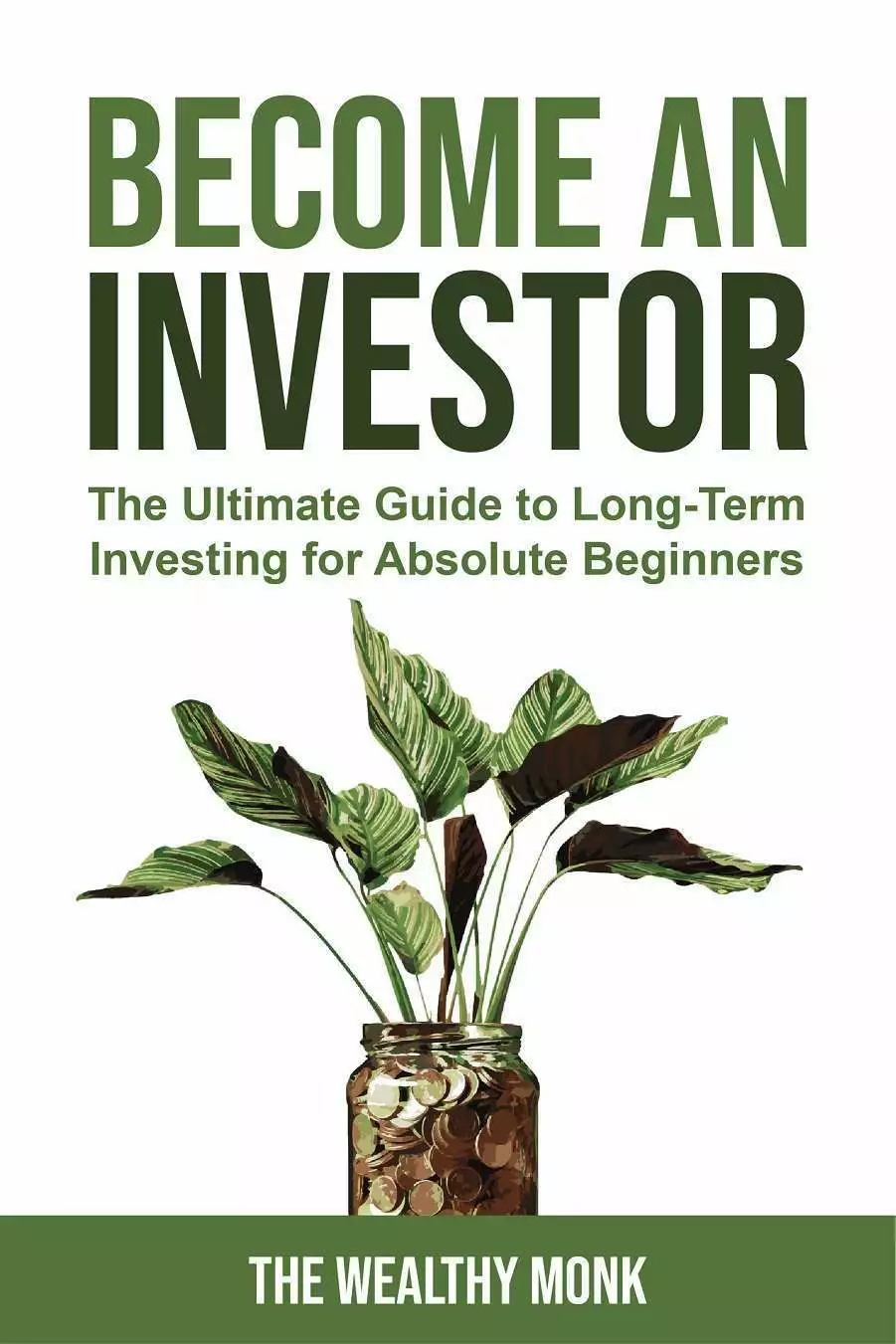





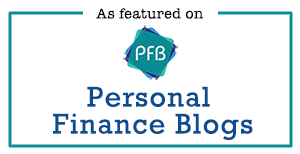



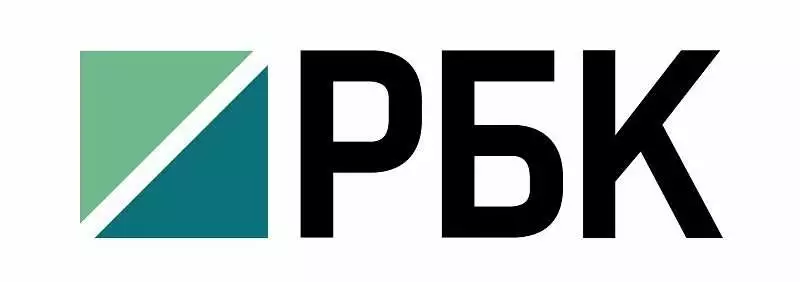

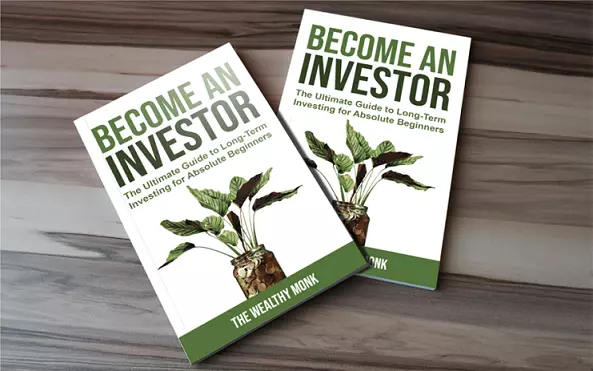
Comments: 12
Great article! Love the game approach (even though I never played computer games).
For me it’s definetely not yet the moment to buy a property to live in, but I will think of your article once we are ready to settle down.
Concerning the “6x your annual salary”, would that be 6x the annual household income for a couple? So could I basically add my BF’s salary to mine and then do the maths?
And where did you get this 6x number from? Anyway it’s good to have some rules of thumb like this one and others you mention in your article.
I featured your article on FIREhub.eu – great that you kept it “international” instead of too country – specific, so that a maximum of our readers accross Europe can benefit from the article.
Thanks Noemi.
Indeed, settling down is quite a challenge for most young professionals. However, you’re already talking in terms of “we”, so that will make the decision easier once the time comes. The answer to using a shared budget is: it depends. It would take me more than a comment to get into the whys and hows, but I’d summarize it as: if you’re both confident that you should, than you can. Hope it makes sense.
Regarding the origin of the number, after I put some thought in it I figured that anything higher than 7 would be too much and anything lower than 4 would be unrealistic in most cases. It’s not backed by science – as I wrote in the post, this assessment works for me (based on my risk profile and as a resident in The Netherlands). The final decision can override any of these questions, which define a roadmap that is open for extension.
Lastly, I appreciate you featuring it on FIREhub. Glad if it assists our community when evaluating their positions.
Thank you for this article Monkwealth. I survived and kept my two lives =). I will share it with my wife.
I had the same question as Noemi (does the 6x the annual household income hold true also for a couple…). But you already answered that. On some US blogs I read that the cost of house shouldn’t be more that 3x the annual household income…)…. That so unrealistic for my country (Slovenia). Here average annual income per person is 12 000 €, 24 000 € for a couple. 24 000€ x 3 = 72 000 € – you only get 50-60 m2 apartments in most cities for that amount of money. In the capital Ljubljana and in the coastal region (where we currently live you don’t even get a 30 m2 studio for that price). And houses in countryside start at around 150 000 €.
The other question I had was this:
Will you be able to cover 6 months of expenses after your purchase? We (me and my wife) would have more than 6 months of expenses left, but it’s in (highly liquid) index fund. Does this count? Additionally after paying the mortgage and all other expenses we would be able to save/invest at least 500 to maybe 1000 € a month.
Our net annual household income is around 32 000 €. We are expecting our 3rd baby so we are looking for a bigger place. Currently we are living in a 65m2 apartment and we are paying a rent of 510€ a month + 180 € for utilities. We are looking to buy an older house in the countryside (they are currently asking 98 000 €) and we are hoping that we will be able to get it down to at least 90 000 €. We are estimating that the renovations would come around 30-40k, maybe 50k euros (house was built in 1936). We might get a least 30% of that renovation money back as a subsidy from the state if we achieve energy efficiency of at least 25 kWh/m2 after renovations. So that would be 90 000€ + 24 000€ = 114 000 €. House is quite big (200 m2) so we thought that we could make a part of the house into a 50m2 apartment that we could rent out for at least 250 € a month. That would cover a part of our mortgage.
The only downside would be that I would need to drive 30 min (50 km on highway) each way to work every day. I know Mr. Money Mustache advises against longer commute and having 2 cars but at least in our country we get our travel expenses for commuting to work (in my case I would get additional 220 € a month for gas).
What’s your opinion? Would you go for it? Some say it’s better to keep renting and invest the money that you would pay for the down payment (30 000 € in our case)…
First of all, congratulations on the third baby!
Based on the details provided, although I couldn’t answer if that particular property is right for you (as I don’t know the market in your country nor your personal situation and it’s from 1936 which is long ago for my taste), it seems to me that you’re ready to settle – and that’s what’s most important. Actually, I think it’s the key question in the game, so I left it for last.
One thing I’d like to encourage you to do is don’t compare your situation to what you read in US blogs. There is lot to be learned, of course, but we’re talking about countries with completely different economies. I’d suggest this to any European, and especially to those in countries with even lower purchase power. Same goes for the commute. If you have the current opportunity at 30m driving distance – fine – that’s how you provide for your family. Don’t feel the urge to justify your opinion because you read an opposing view somewhere. It’s your life, at the end.
And lastly, for a price in the range you mentioned, it seems like your housing costs will be comparable to what you currently spend, so that’s perfect. If you could really increase the cash-flow by renting a part of it, even better. And lastly, I wouldn’t feel like I’m missing out on something for putting a down payment for a home where I’d live.
So, to answer the question more directly: I don’t know if I’d go for it (the specific property), but for sure I’d go for owning a home at this stage.
Great article!
I like the gaming approach in it.
I lost my two lives at the same steps as you, 3 and 7. Probably because neither you or I live in our home countries and live in a similar situation. I don’t know were I will be in 5 years. My and my partner have applied for a Canada International Experience Visa. We may get it or we may not. Or perharps hard Brexit makes us run off The UK.
Conclusion: not the best time to buy a house for me.
Yes, good point. I also think that being an expat makes 3 and 7 the hardest levels of the game.
Interesting read!
Your take does feel a bit biased (you’re young, unmarried, living abroad), which is fair enough – I just think the “rules” differ a little, when you’re married and have kids 😉
In regards to the gearing (property price vs. annual household income) the thumb rule in my country is (this will be the bank setting these rules): 1:3 = safe, 1:4 = OK, if you have good steady jobs and are well educated, 1:5 = You better have a raise/passive income coming in shortly, 1:6 = No way.
When we purchased our “forever home” (which might have turned out NOT to be our forever home after all – spoiler alert!), we passed 1:5. Luckily, I had a fairly good relationship with the bank, and the reason we went 1:5 was because we also owned (co-owned with the bank, obviously) a summer residence. We’ve since sold the summer house, and are now clear in the 1:3-1:4 range.
I find myself often struggling with being in debt. I was brought up with the idea that debt should be avoided. Now my financial litteracy tells me that my current debt is GOOD (maybe even healthy!), but looking at the dark clouds ahead (expecting another recession to hit eventually), I still feel a bit too exposed towards the interest rate.
I see you’re holding on to a big pile of cash (like myself). I was planning to use that pile (approx. €50.000) to purchase real estate (rental apartments) via local REIT-like opportunity. But since reading your piece on the market cycles, it’s pretty clear to me that now might not be the best time to go into real estate. So now, I’m just hanging on to a huge pile of cash – much like yourself.
What do you plan to do with it, now that you’ve come to realize that buying a home might not be the best idea?…
Thanks for the comment, Nick.
First let me get this out of the way: I don’t agree that the post is biased. I clearly state in the Further Evaluation section that the steps differ under different conditions and that everyone should adapt them to their own situation. This is an inherent characteristic to most generalizations, so I’d never completely abstract a 6 figure (or any) decision. But apply some modifications, maybe add, edit, or remove a step, and you have a nice structure that can work for you.
With that out of the way, I agree with Denmark’s proportions. As I say in the post, I’m more flexible with the steps because not everyone lives in the same environment and under the same conditions as I do (talking about not being biased :)). Personally though, I’d also never go for anything above 1:3. I’m actually keeping an eye on 1:2-2,5 properties that become more frequent where I live.
About the worries for the interest rate – it’s also really case specific. Although recessions are a great opportunity to buy low, the reality is that we don’t know when it’ll come and, when it comes, whether we’re catching a falling knife. However, not overspending is the best hedge against it – you’ll sleep well at night even if the prices plunge temporarily while the mortgage payments are affordable regardless of market conditions.
If you’re buying soon, a details-withheld approach you could take is fixing the mortgage to a 10 year rate now and start paying out your interest earlier (for example, the banks in NL allow lump sum 10-15% interest repayments once per year). This won’t hurt your long-term budget that much and will make you less exposed to IR volatility.
About the money, I’ll still keep a portion in cash. I’ve evaluated that buying a property may not be the right thing to do, but I’ll reevaluate again at the end of the quarter. I wouldn’t dump it all in a down-payment though. Maybe 20-30k, depending on what will make sense when the time comes. Excel would be my friend there.
Apart from that, there are some pretty nice 5Y certificate of deposit opportunities in euros in a few banks in my country offering >3% interest, so I’d allocate a portion there, but for now keeping them in cash seems like the right way to go.
Here in South Africa, the property prices fluctuate so much, so buying a house for yourself to live in seems a bit risky if you want to sell it later for a profit. Because of this a lot of people are buying property to rent out (like my parents).
Also, a lot of people my age (late twenties) simply cannot afford to buy a house, so we have to rent.
You gave great tips, though. I’ll keep it in mind when I have my life somewhat together.
All the best from South Africa, Michelle (michellesclutterbox.com)
Thanks for stopping by, Michele!
Yes, real estate is not an asset class that we can apply universal rules to, it highly depends on personal, legal, and other circumstances. Although the volatility is not as high in every country, here’s a piece of comfort: luck plays a factor everywhere – and not only related to the prices of the homes.
That being said, if I can single out one universal rule, it would be not overspending.
All the best to you too! 🙂
This is a really great post. I love the style of this, it really gets you thinking about your own situation.
Thanks Kelly!
Indeed, I think it’s a great model of assessment – thought that way before and still mean it, looking back.